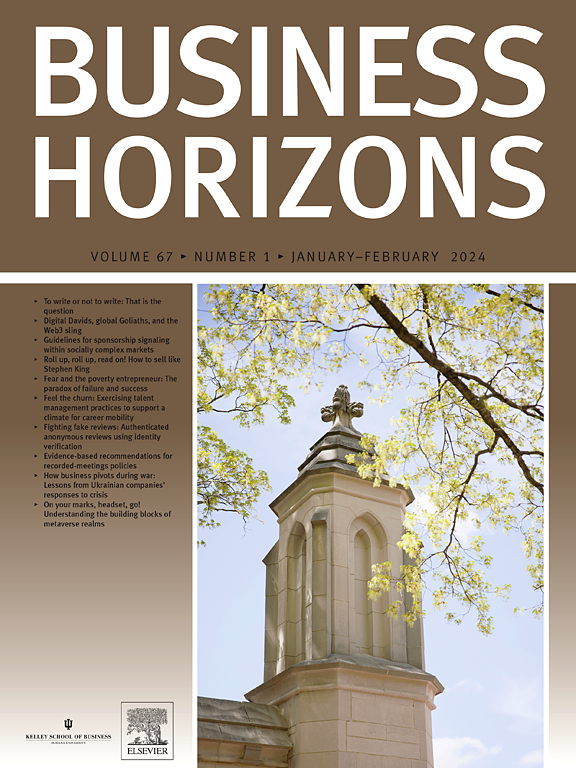性别平等的男性冠军团体:潜力巨大,挑战重大
IF 7
3区 管理学
Q1 BUSINESS
引用次数: 0
摘要
在世界范围内,女性在高级领导职位上的代表性仍然不足,但很少有组织将性别平等作为战略重点。随着监管机构要求组织推进性别平等的压力越来越大,男性冠军团体正成为一种创新的变革战略。然而,即使是最热心的领导人也会因为善意的性别平等努力而受到批评。随着这些群体在澳大利亚和其他地方的增加,调查限制其有效性的因素并考虑如何发挥其潜力是很重要的。我们使用档案数据记录了五个男性冠军团体的进展和活动,并进行了41次访谈,以突出他们面临的挑战。就职小组的成员在他们的组织中尝试了性别平等倡议,并公开倡导性别平等。在随后的小组中,大多数成员从事低影响的范围界定活动,避免公众宣传。因此,我们强调了男性冠军团队面临的两个独特挑战:(1)召集高度忠诚的成员的临界质量;(2)管理高地位的成员。随着群体的增加,这些挑战变得更加明显。为了解决这个问题,我们提供了三条建议来利用男性冠军团队的潜力:(1)彻底审查成员,(2)提供现实的预览,(3)建立团队章程。本文章由计算机程序翻译,如有差异,请以英文原文为准。
Male champion groups for gender equality: Big potential, major challenges
Women continue to be underrepresented in senior leadership roles around the world, yet few organizations are making gender equality a strategic priority. With mounting pressure from regulatory bodies for organizations to advance gender equality, male champion groups are emerging as an innovative change strategy. However, even the most enthusiastic leader can be criticized for well-intentioned gender equality efforts. As these groups multiply in Australia and elsewhere, it is important to investigate the factors that constrain their effectiveness and consider how their potential can be delivered. We used archival data to document the progress and activity of five male champion groups and conducted 41 interviews to highlight the challenges they faced. Members of an inaugural group experimented with gender equality initiatives in their organizations and publicly advocated for gender equality. In groups that followed, most members engaged in low-impact scoping activities and avoided public advocacy. As such, we highlight two unique challenges experienced by male champion groups: (1) assembling a critical mass of highly committed members and (2) managing high-status members. As groups multiply, these challenges become more visible. To combat this, we provide three recommendations for harnessing the potential of male champion groups: (1) thoroughly vet members, (2) provide realistic previews, and (3) establish group charters.
求助全文
通过发布文献求助,成功后即可免费获取论文全文。
去求助
来源期刊

Business Horizons
BUSINESS-
CiteScore
17.70
自引率
5.40%
发文量
105
期刊介绍:
Business Horizons, the bimonthly journal of the Kelley School of Business at Indiana University, is dedicated to publishing original articles that appeal to both business academics and practitioners. Our editorial focus is on covering a diverse array of topics within the broader field of business, with a particular emphasis on identifying critical business issues and proposing practical solutions. Our goal is to inspire readers to approach business practices from new and innovative perspectives. Business Horizons occupies a distinctive position among business publications by offering articles that strike a balance between academic rigor and practical relevance. As such, our articles are grounded in scholarly research yet presented in a clear and accessible format, making them relevant to a broad audience within the business community.
 求助内容:
求助内容: 应助结果提醒方式:
应助结果提醒方式:


